How to Make Falafel and a KoMo Classic Grain Mill Review
Learn how to make falafel at home using a Komo Classic Grain Mill. Choose chickpeas, fava beans or a combination of both flours to create the most delicious falafel mix to keep on hand in your pantry.
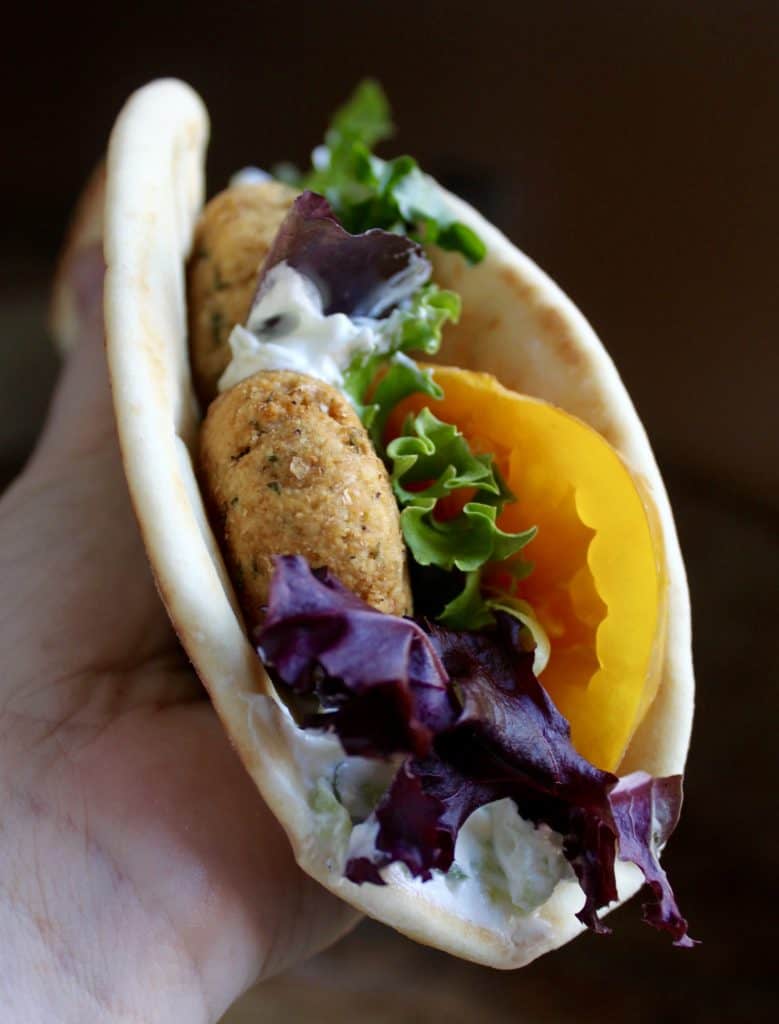
If you’re like me, you’re constantly trying to buy less processed foods, and just trying to make better choices at the grocery store, and overall, eat healthier. Sometimes it feels like baby steps: like using labne instead of sour cream. Other times it feels like a giant leap, for example, when I started using my KoMo Classic Grain Mill to grind grains into flour.
As an Amazon Associate I earn from qualifying purchases.
Disclosure: Pleasant Hill Grain (PHG) sent me a KoMo Classic Electric Grain Mill to try with the condition that if I liked it, I would keep it, review it, and could host a giveaway for my readers, and if I didn’t, I’d simply return it. I kept it and a reader won their own! As always, all opinions are my own. I have included my affiliate link for which I earn commission for purchases made.
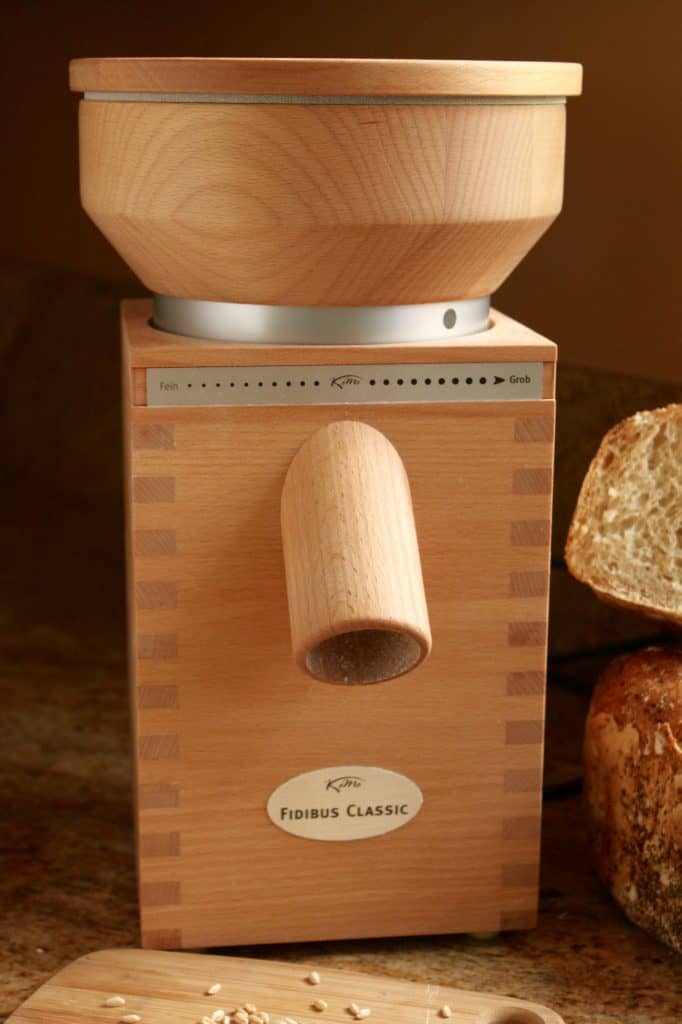
Komo Classic Grain Mill Review
I’ve had my KoMo grain mill for a few months now, and cannot tell you how exciting it has been to learn just how wonderful it is in expanding my versatility in the kitchen. Now, I don’t have to buy expensive and overly processed flours, instead I can can grind my own.
My friend bought teff and didn’t realize it had to be flour in order to use it, so my KoMo mill came to the rescue and milled it perfectly. Rice flour? I used to buy it, but no more.
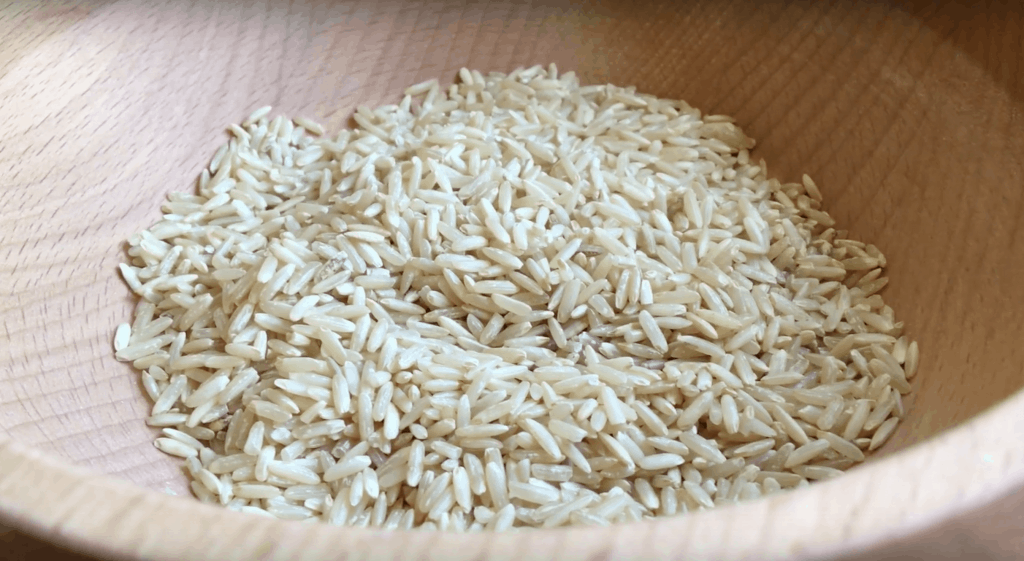
I can grind oats finely or more coarsely, depending on what my recipe requires. Just take a look at how the KoMo mill can coarsely grind steel cut oats. Of course, wheat is a given, to make my own whole wheat baking flour for homemade breads and more.
Let me tell you a little about the actual mill before I get into more detail about what it can do, and my most exciting discovery to date!
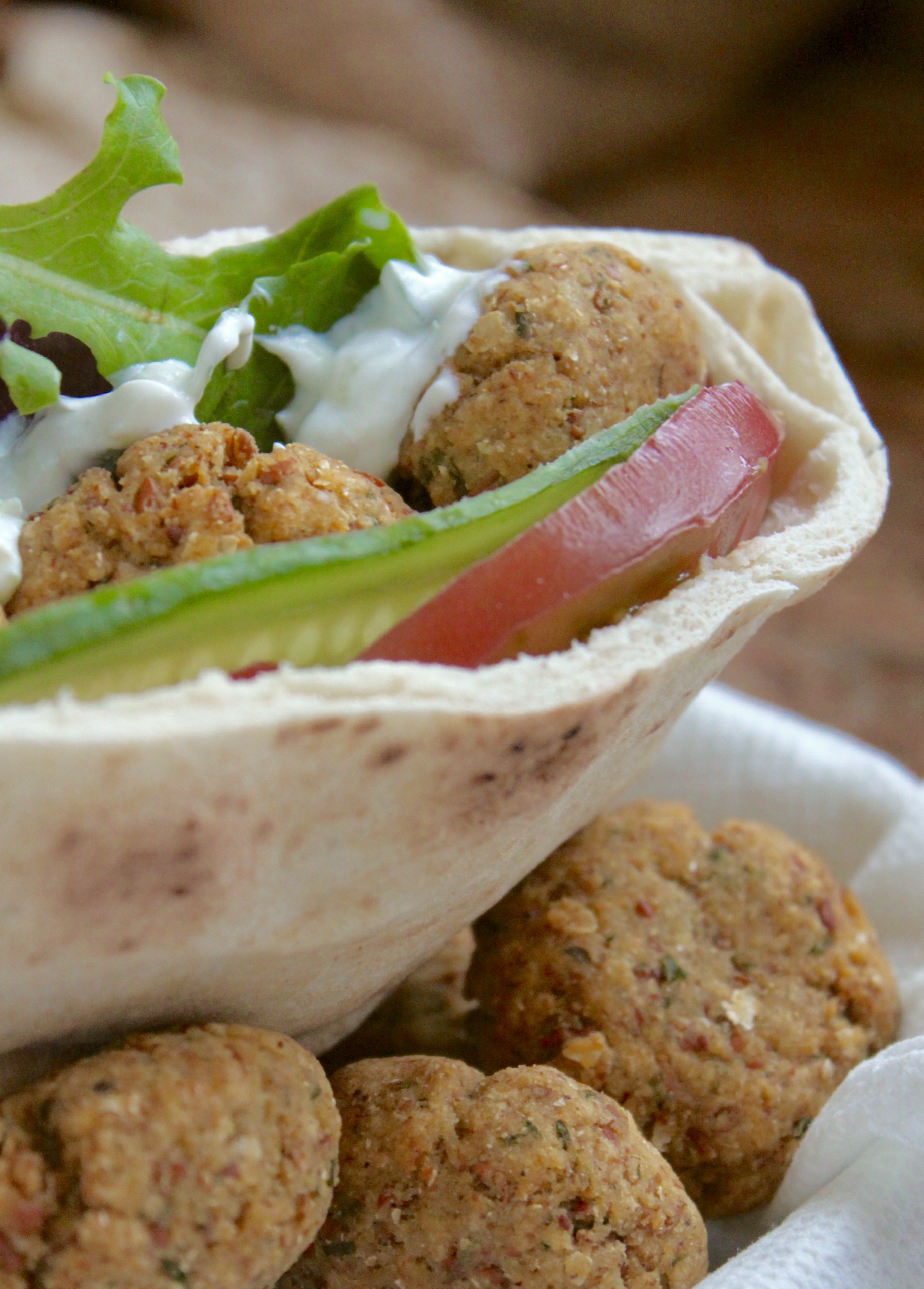
KoMo Grain Mills are made in Germany and upon inspection of this product, you can actually see the quality craftsmanship: it is simply beautiful. My KoMo Classic mill is constructed of solid native beechwood (there’s a darker model made of American Walnut) with finger-jointed corners.
This mill is heavy, as in 15 lbs heavy; it is definitely not something you will find in a discount department store. The quality is also evident in the fact that it comes with a 12 year warranty.
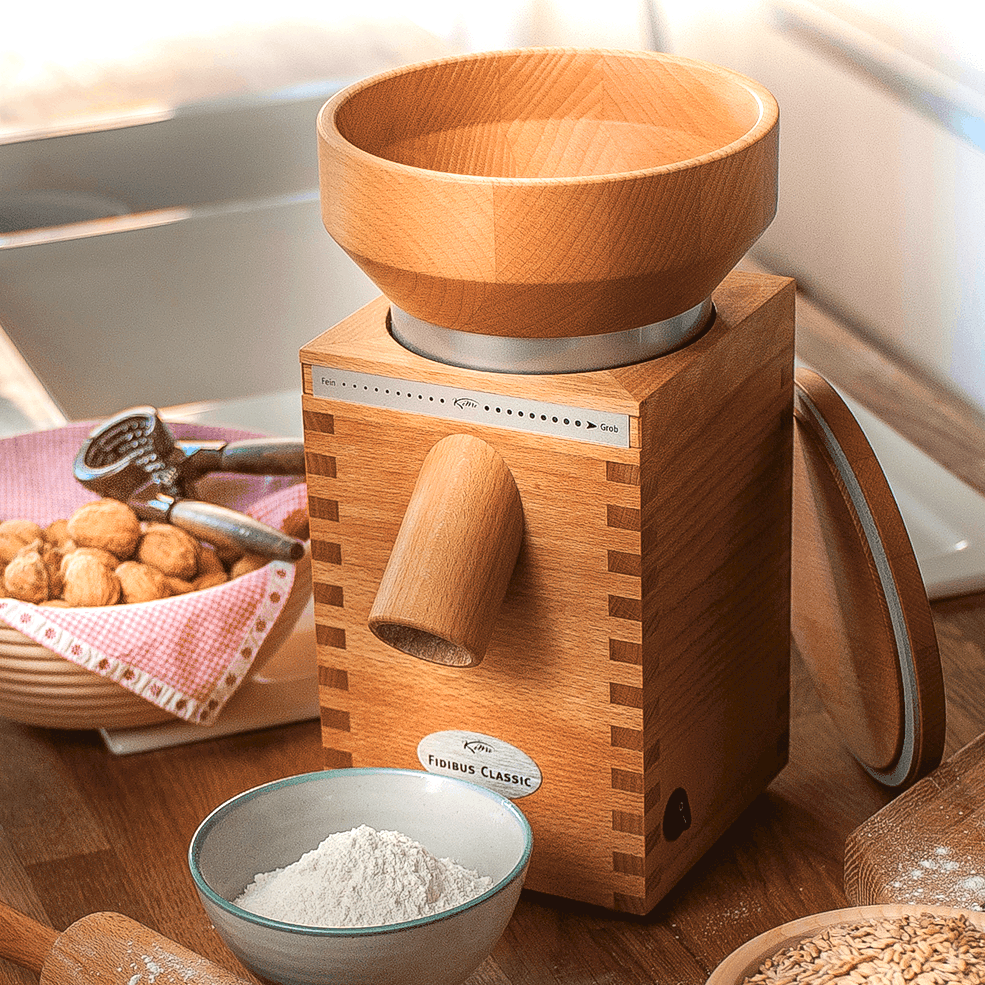
One thing you know about me, if you have been following Christina’s Cucina for any length of time, and that is my honesty to my readers is my utmost priority. That being said, I am going to tell you what I did to my mill. I feel like a twit, as in hindsight I should have known better, but I chalk it up to the excitement of finding more and more things to grind.
What not to put into Your Komo Classic Grain Mill
Here’s the story: I had some natural sugar which is a bit more granulated than normal white sugar and it’s not that great for baking, as it stays gritty and doesn’t cream well with butter. So I thought, “Oh, I can throw it in the KoMo grain mill and make it finer!” and that’s what I did. I figured out the right setting for fine, but not powdered sugar and it was perfect!
I was so excited to be able to use the sugar for baking and have it work well in my sweets. Genius, right? Well, not really–because after I’d milled about a pound or more of sugar, the mill began to slow down and I wasn’t quite sure why. After a little while, the power was still going, but the grinding had stopped. Turning it on and off didn’t work. I tried adjust the grind to make it less fine, to no avail.
I was perplexed to say the least. Then I thought maybe it had overheated, so I let it cool down and tried turning it on later, again, to no avail. I was stumped, so I called Pleasant Hill Grain.
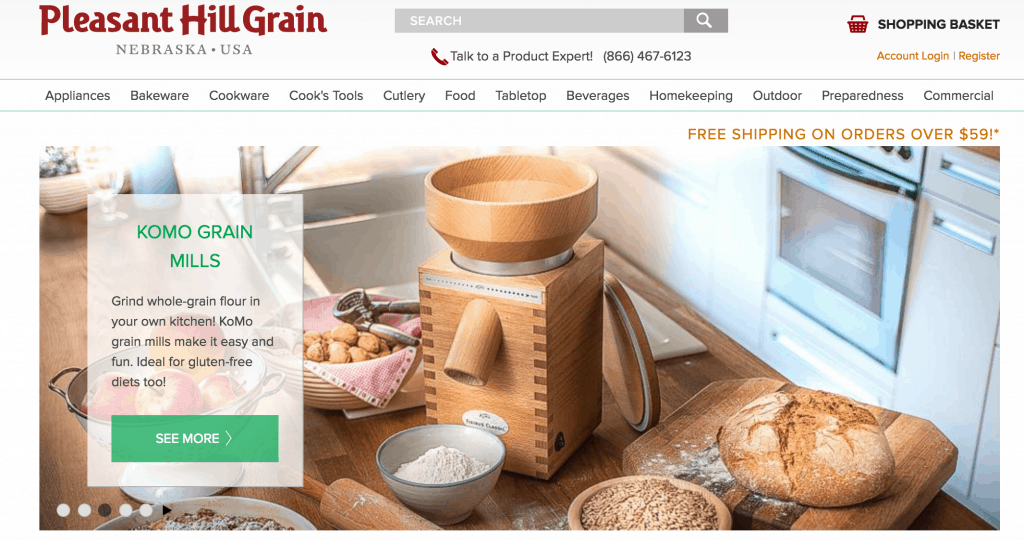
Barbara at PHG ended up being one of the most patient customer service reps I’ve ever spoken to (she had no idea I was reviewing the mill when I first called). When I told her what happened, she said, “Well, sugar isn’t something you want to put in the mill”. Before she’d even completed her sentence, my mind pictured the hot stones going round and round, heating the sugar and caramelizing inside the mill. The sugar had glued the millstones together–I felt like a royal idiot!
I’ll cut a long story short and tell you that after Barbara instructed me in what to do to open the mill, (my husband ended up doing it for me) and instead of having to ship the grain mill back to have the stones unglued, he got them apart. Barbara then told me to run some rice through the mill which would clean the stones, and it worked! It’s now working as perfectly as when I received it, thank goodness! Barbara was fantastic, and this experience showed me just how excellent Pleasant Hill Grain’s customer service is.
Here’s one tip I can now give everyone: don’t put sugar in your mill!
What to Grind in Your Komo Classic Grain Mill
You do want to put all sorts of wheat and grains in your mill, though! One advantage that KoMo has over other popular impact mills is the ability to grind grains more coarsely than a fine meal texture.
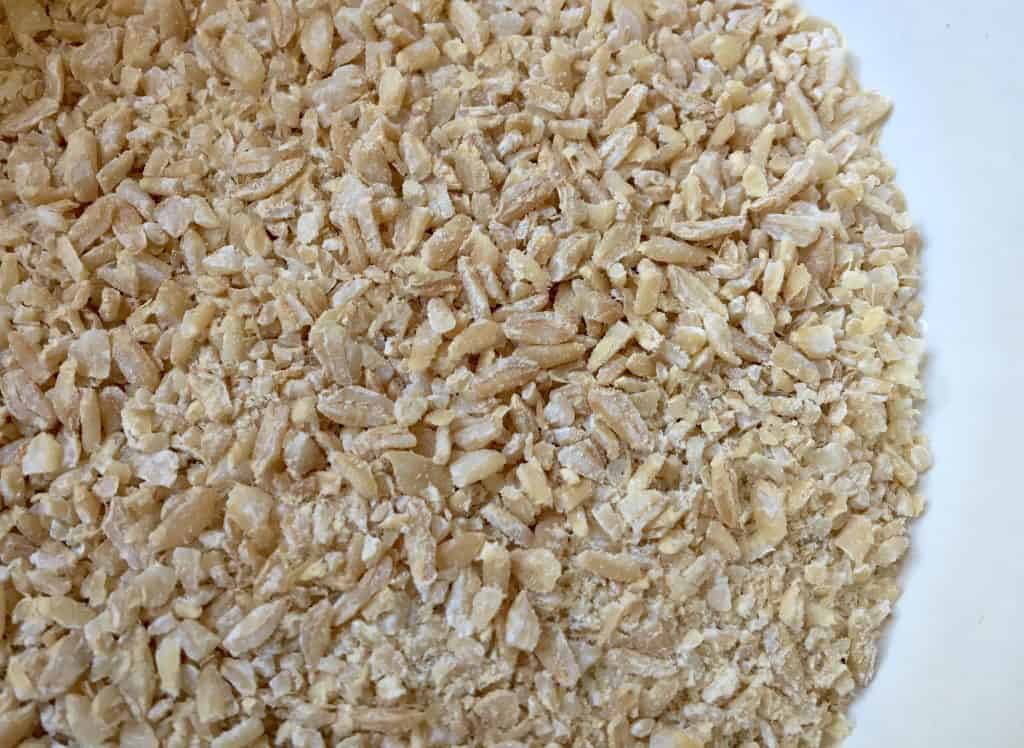
I’m still learning about different types of wheat and what they’re best for, but here’s an example of a lovely loaf I made in my bread machine, with only wheat flour that I milled in my KoMo mill. You can see the cracked wheat on top, which is something you can’t do with many other mills. If you’re trying to decide on which mill to buy, this may be exactly what you’re looking for: GRAIN MILL BUYING GUIDE.
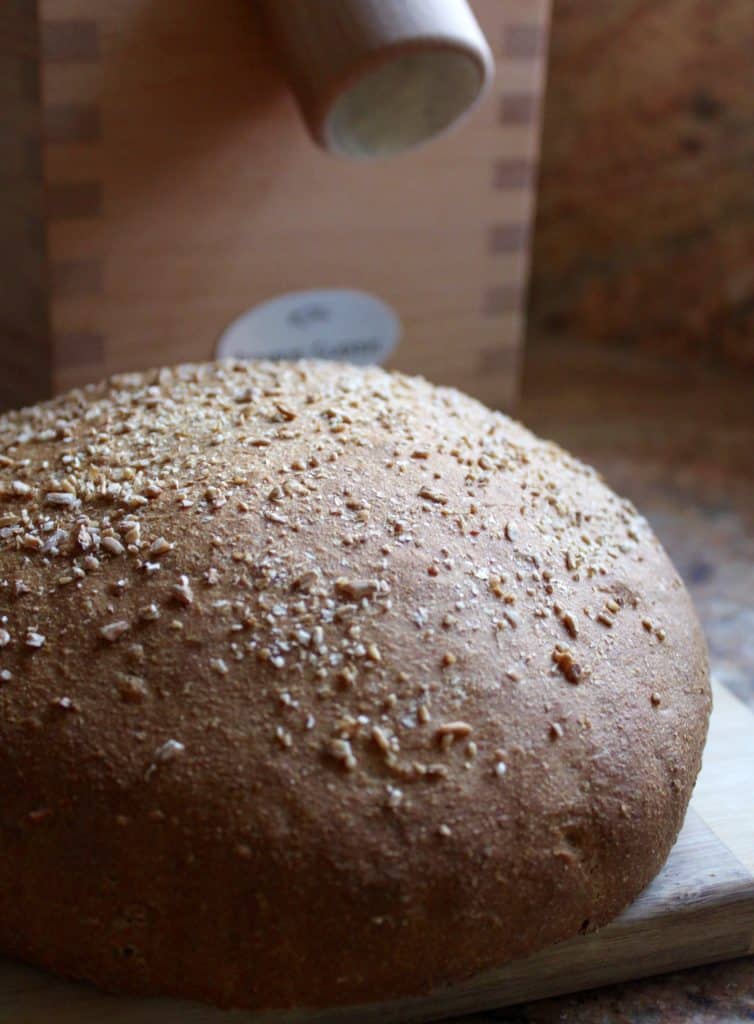
I always add some whole wheat flour (which I used to buy) into my white bread flour to make my favorite No-Knead bread. Just look at this loaf!
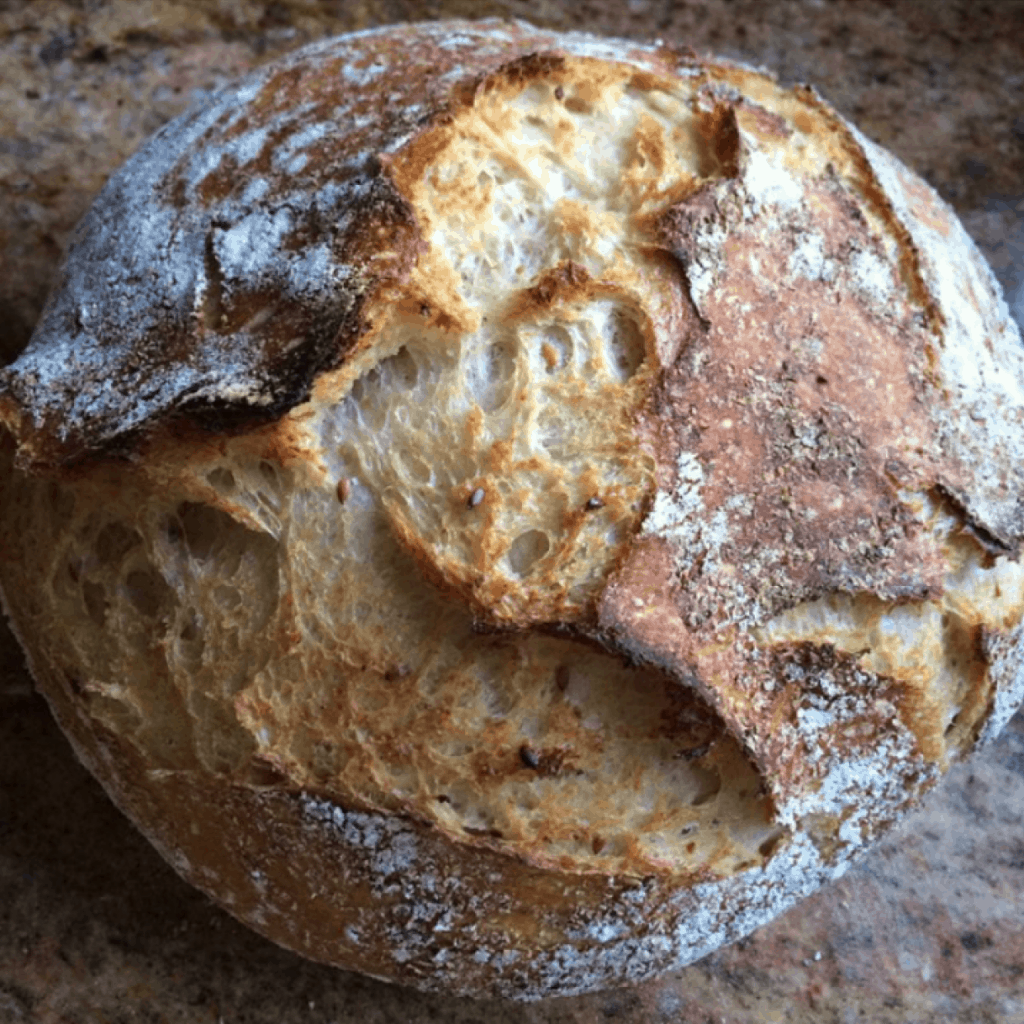
Did you know that most flour that you buy at the store is stripped of all the nutrients that are found naturally in the whole grain? It is then bleached (why would you want any of your food bleached?) and enriched (vitamins and minerals that were removed are then added). Doesn’t this seem totally contrary to any sort of common sense?
Could this be one of the reasons that celiac disease and other digestive conditions are becoming rampant in our society? Think about the amount of overly processed flours that are sold to consumers and used in store-bought breads, rolls, cookies and cakes.
Milling your own grains is one way to remove a lot of the processed food in your diet, especially if you are a bread lover, like me. But there’s so much more that you can do than just bread making when you have a KoMo mill.
All dry grains can be ground with the KoMo Classic grain mill, including soft or hard wheat, oat groats (dehulled oats), rice, triticale, kamut, spelt, buckwheat, barley, rye, millet, teff, quinoa, amaranth, sorghum, soybeans and dent (field) corn. It will also grind lentils, dry beans (pinto, red, garbanzo, kidney & more), and dried, non-oily spices. It isn’t suitable for herbs, oilseeds like flax or sesame, popcorn, or fibrous materials. –Pleasant Hill Grain
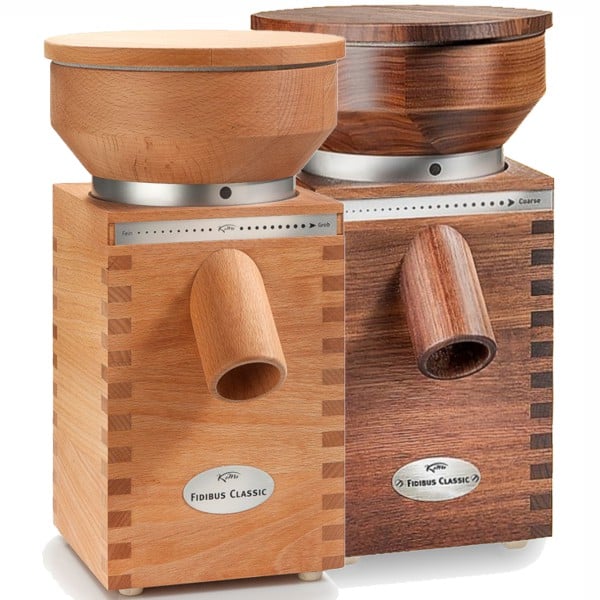
Making Homemade Vegan, Gluten Free Falafel Mix and How to Make Falafel Balls
Here’s an example of something I’d never have thought I could make before having my KoMo grain mill: my very own gluten free falafel mix, which is also vegan! I first tried falafel when I moved to Los Angeles about 25 years ago, but I had no idea how to make it, so I bought boxes of mix.
They turned out very tasty, but it never occurred to me to try to make my own. More recently, I’d seen recipes using soaked or canned chickpeas, but I’d always had falafel from the dried flour of chickpeas and/or fava beans. I like the idea of using fava beans for added nutrition, too.
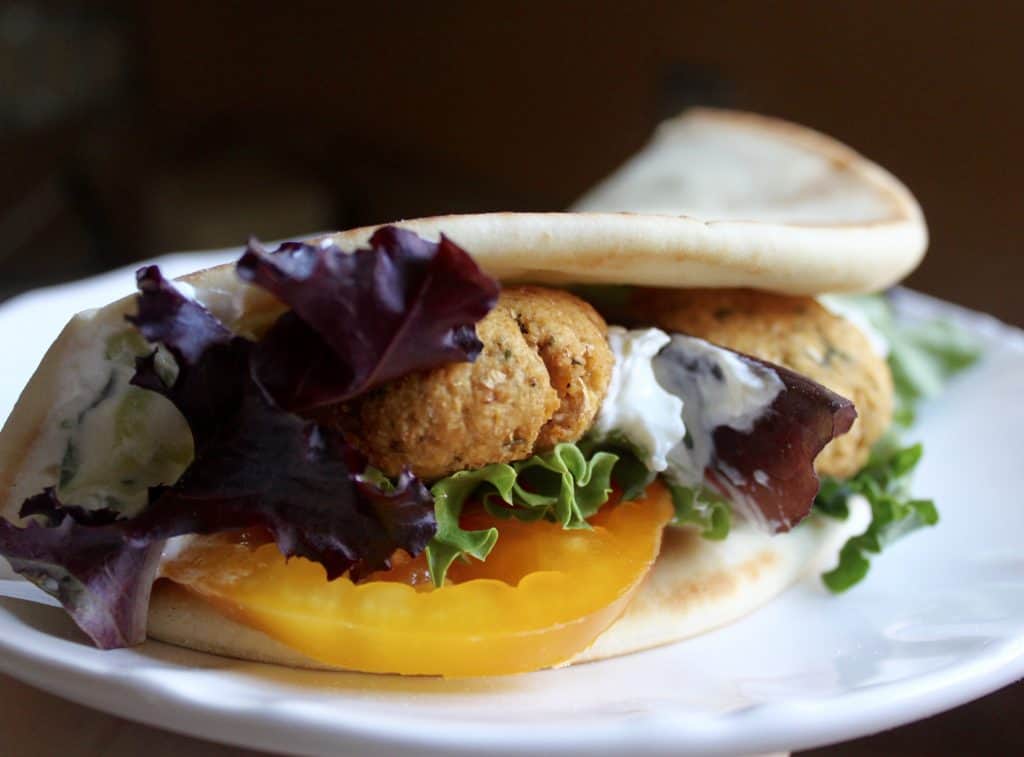
Having the mill and using it for all sorts of grains and legumes, made me think about making my own gluten free falafel mix. So I researched this topic online, but couldn’t find any recipe using flours. I then turned to those boxes of falafel mix for spice ideas. However, I must say I was a bit shocked at some of the ingredients which made me feel even better about making my own homemade gluten free falafel mix.
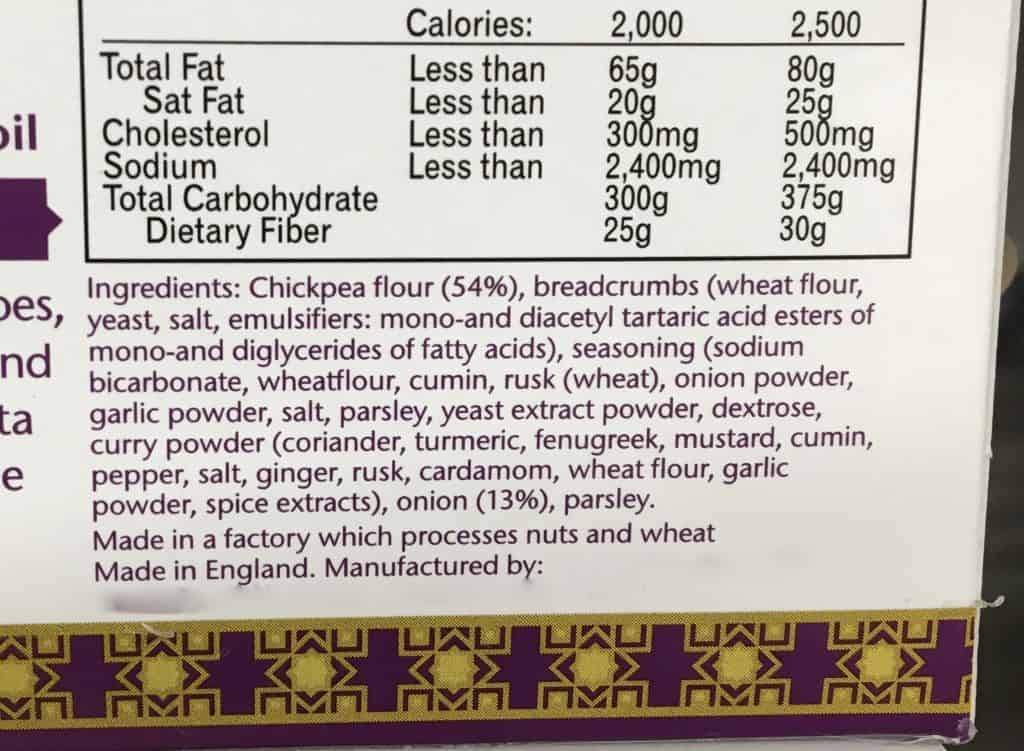
I tried a combination of grinding chickpeas and then fava beans and mixing the flours together, then using trial and error, I discovered the right formula of spices and other ingredients. Don’t ask me how these large legumes are ground in the KoMo mill as it just looks like magic to me!
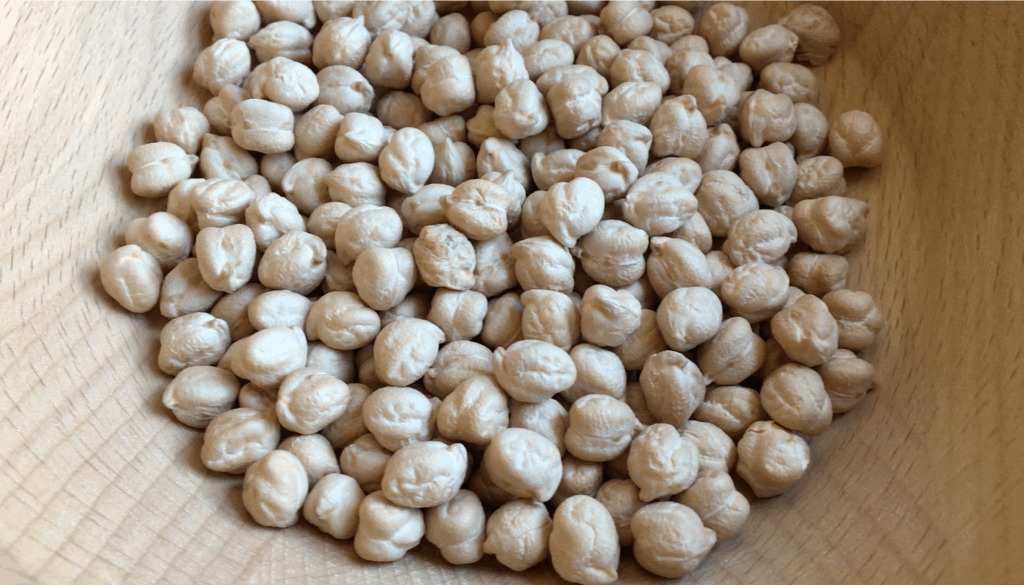
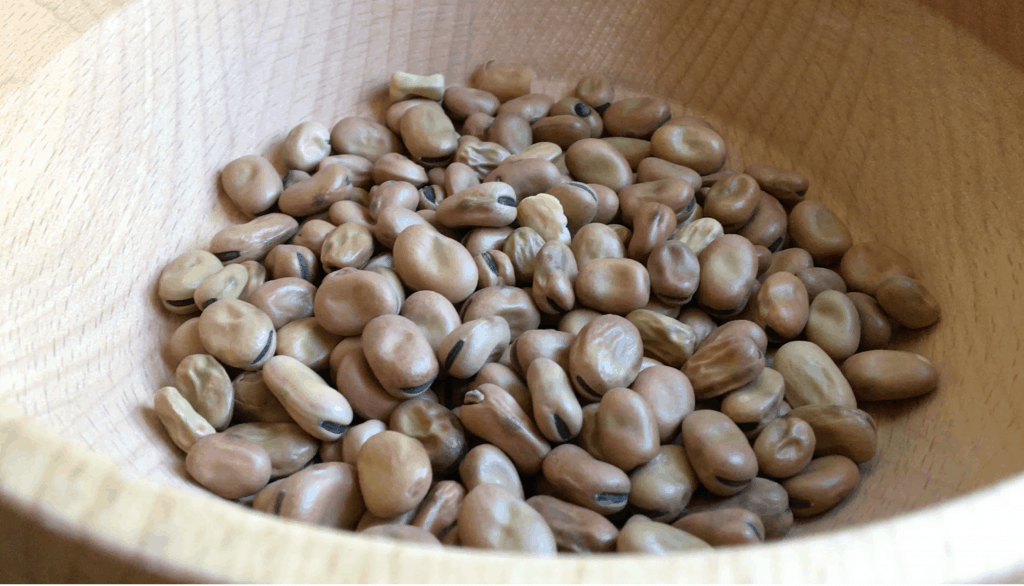
I had several “tasters” to give me feedback on the different versions of falafel that I made, including one of my daughter’s best friends who is vegan. She loved my final version so much that I gave her two bags of the mix to take to university with her and she jumped for joy!
Don’t these look fantastic? Look at the texture of these falafel; and they taste even better than they look. Now you can learn how to make falafel balls, too! They’re wonderful as an appetizer dipped in a blue cheese dip or blue cheese dressing.
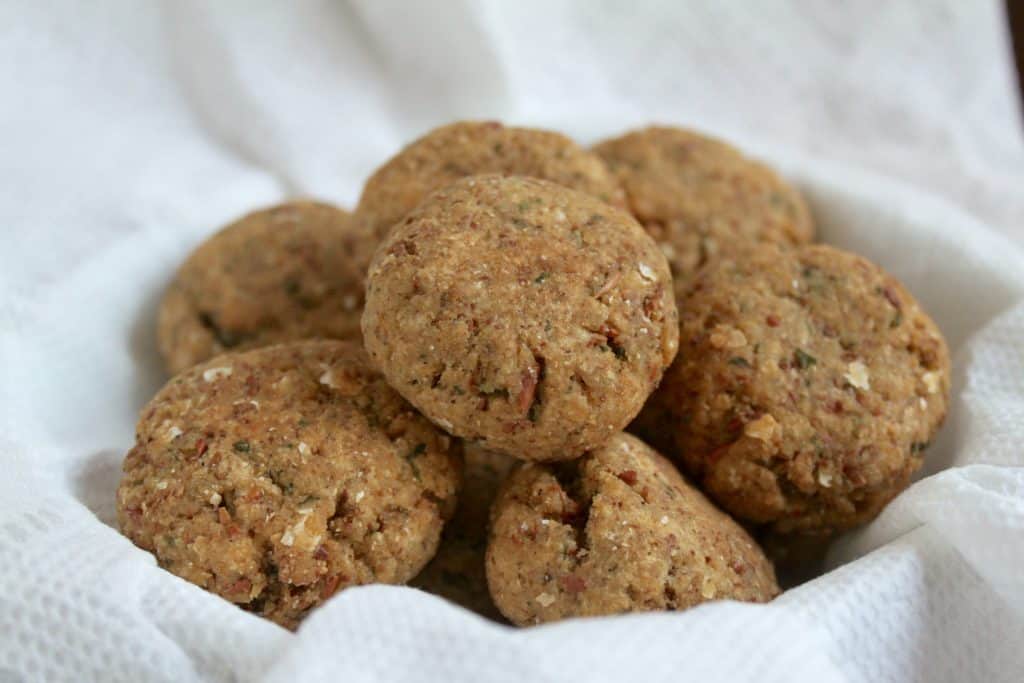
What I really love about this homemade gluten free falafel mix is that I can make a few batches to keep in the cupboard as a perfect solution when I have no clue what to make for dinner. All that’s needed to make them is water (and oil to fry them, but they can also be baked). I hope you love this post on how to make falafel balls as the mix is a great pantry staple!
I always keep some pita bread in the freezer (or I fry up some dough) and with a few veggies and tzatziki sauce, a delicious and nutritious meal is ready to go. It also happens to be gluten free (and vegan if you skip the sauce).
How to Make Falafel Balls (a Gluten Free
Falafel Mix Recipe)
original recipe by Christina Conte
Ingredients
- 1 cup (150 g) fava/chickpea flour (ground with a Komo Mill at about 6 clicks to the left of center)
- 1 tsp kosher or sea salt
- 2 to 3 teaspoons dried parsley
- 1 teaspoon coriander
- 1 teaspoon cumin
- 1 1/2 tsp garlic powder
- 1/2 tsp onion powder
- 1/2 tsp freshly ground black pepper
- 2 tsp baking powder
– olive oil for frying
Mix all ingredients together and keep sealed in container or plastic bag until ready to use.
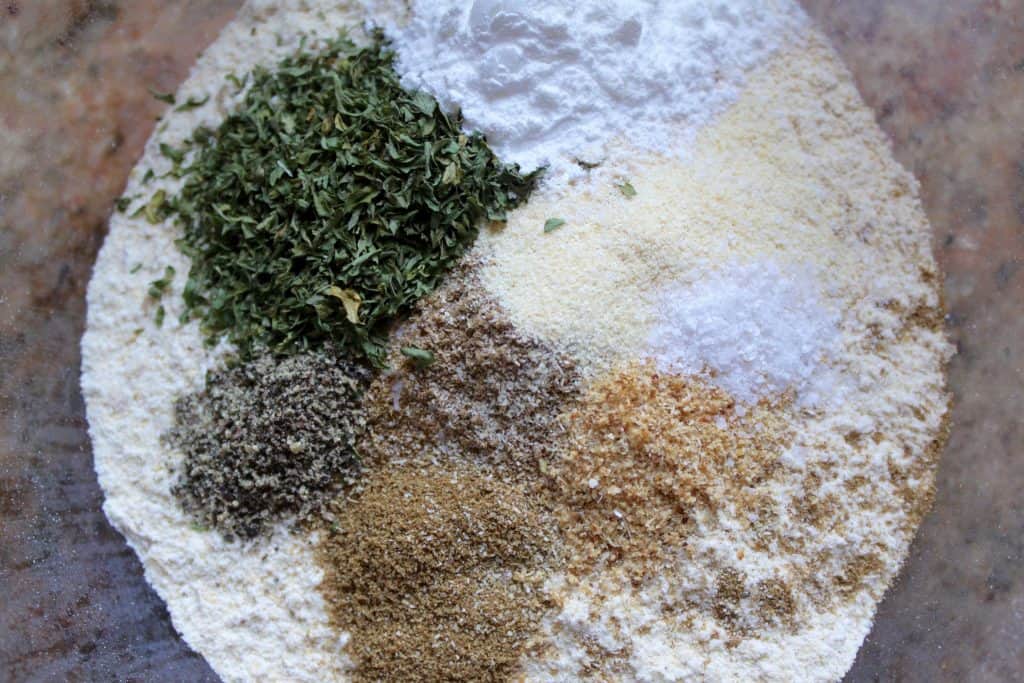
To make falafel balls, add 4 ounces of water to the mixture of dry ingredients.
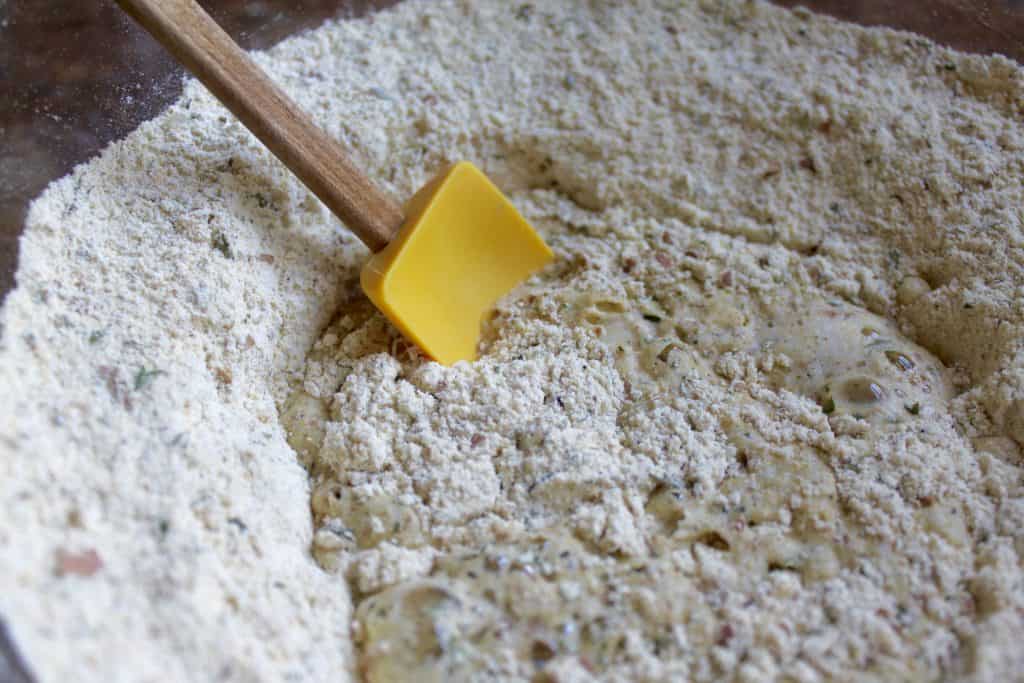
Allow to rest for 10 to 20 minutes before forming into balls or patties.
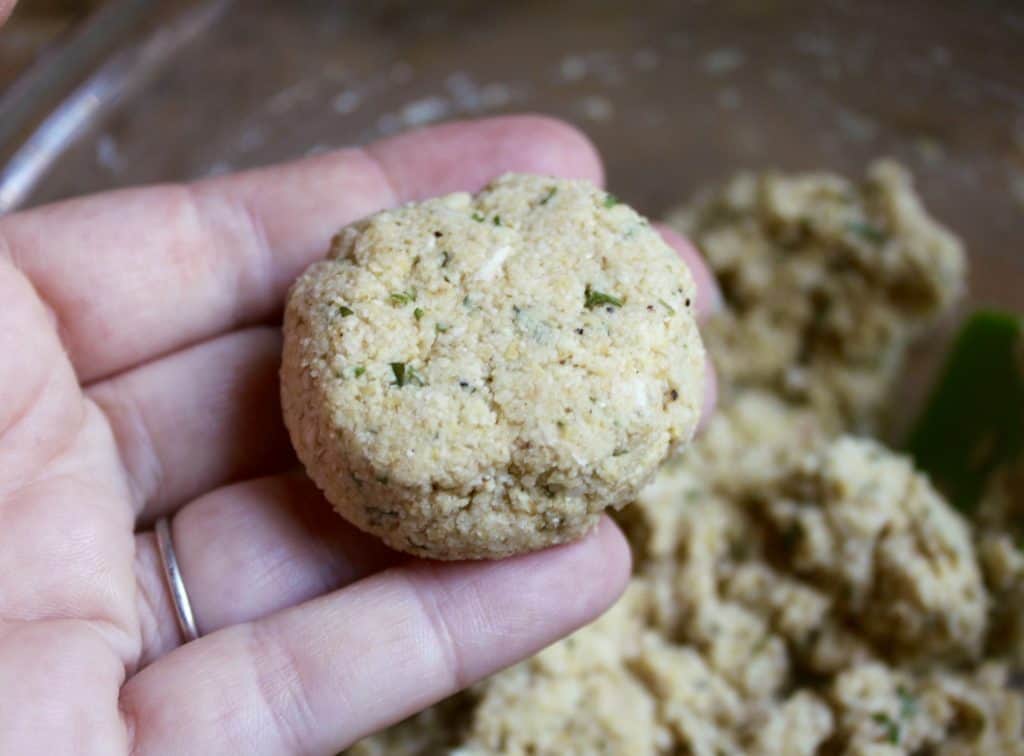
Fry in heated oil for about 3 to 4 minutes until lightly browned.
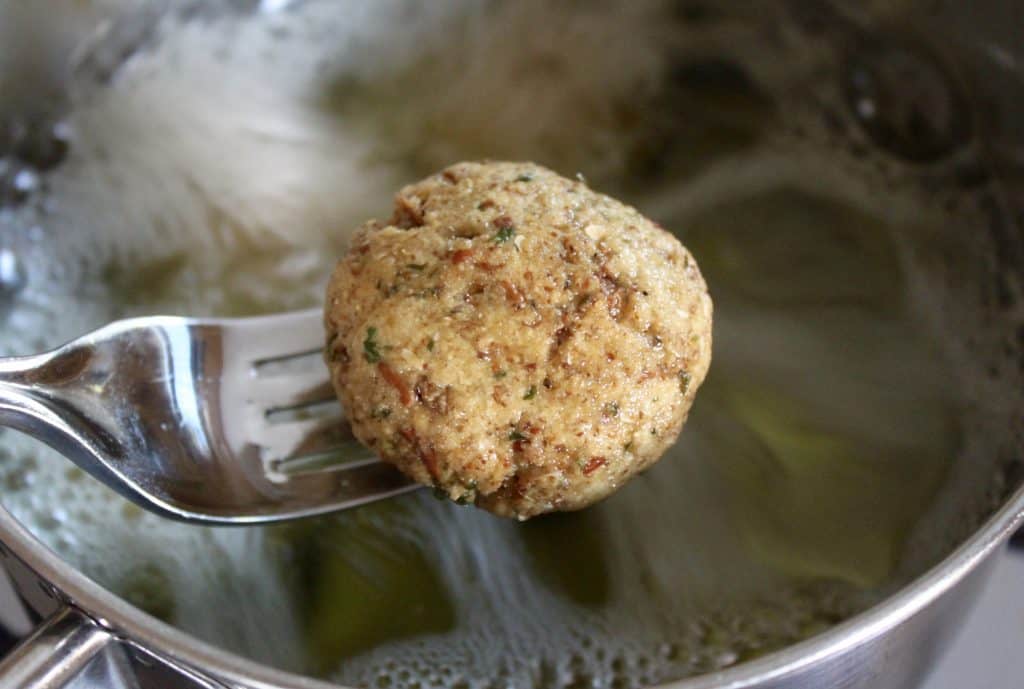
Drain on paper towel.
Serve as desired. My favorite way to eat them is on Greek-style pita bread (done this way without oil, you can make your own). Spread some tzatziki sauce on the bread, then add your desired veggies (tomato, lettuce, sliced cucumber) and falafel patties and enjoy.
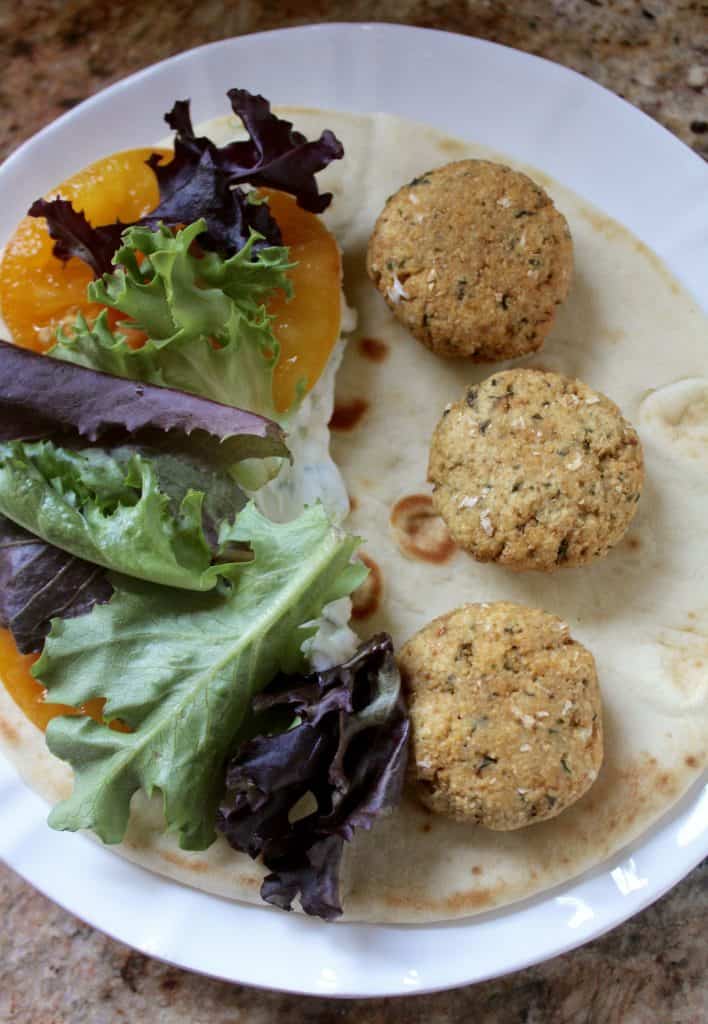
You can do the same with a pocket pita.
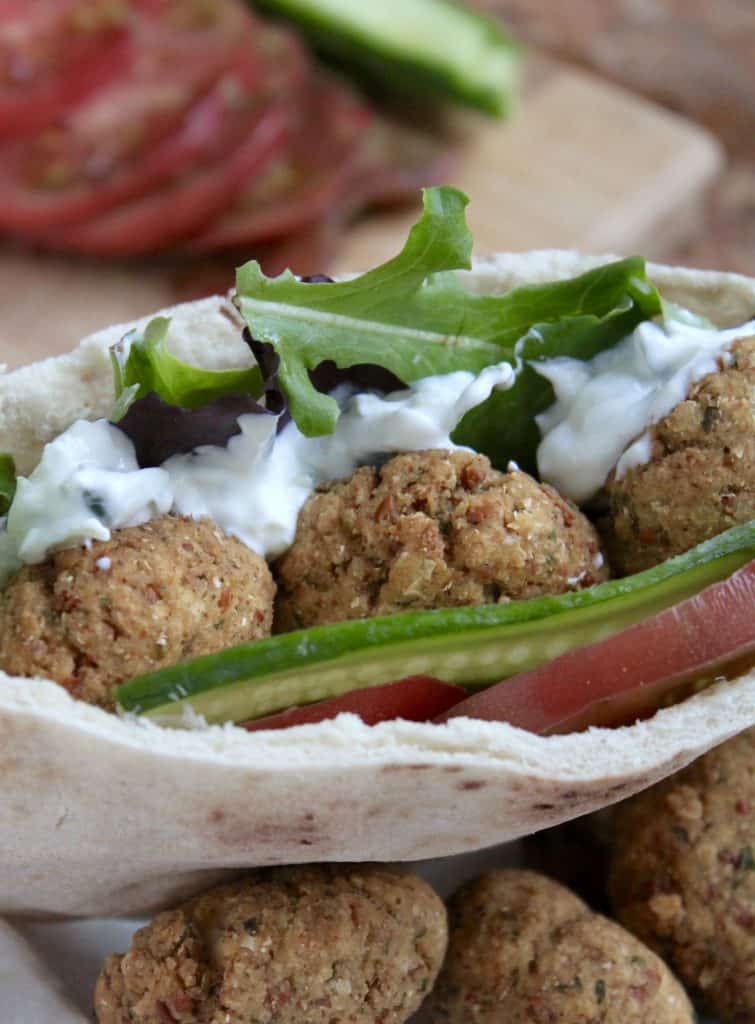
They’re also great as appetizers served with a bleu cheese dip (recipe to come). Printable recipe for DIY gluten free falafel mix is below. I hope you share this post on how to make falafel balls with everyone you know, it’s such a great meal!
If you can’t wait, here is Pleasant Hill Grain’s website and more information on the KoMo Classic Mill. PHG also sells so much more than mills. For example, they sell other appliances, kitchen tools, cookware, bakeware, grains, legumes, and a dizzying array of products.
Don’t miss another recipe or travel post; sign up for my free subscription below!
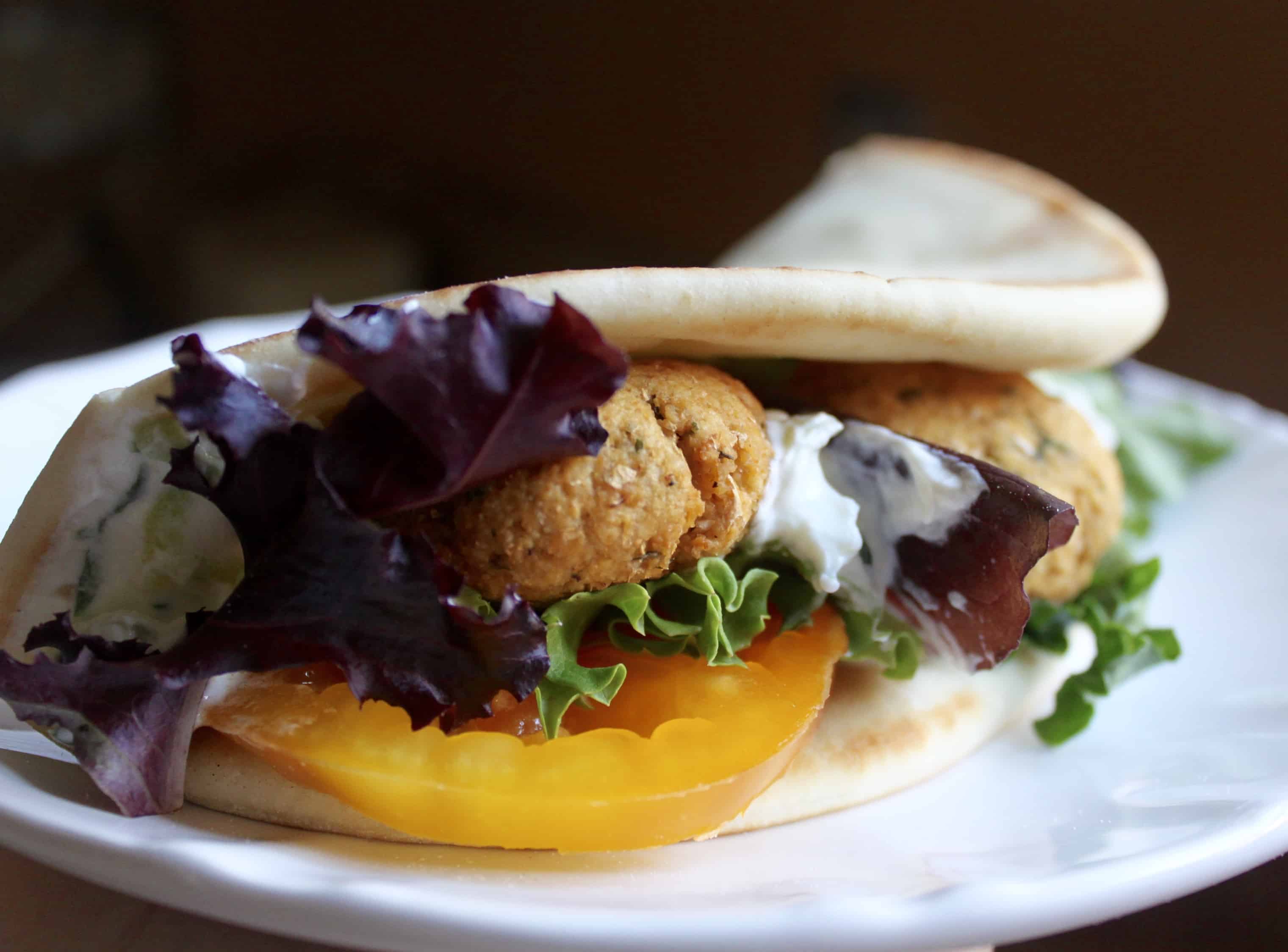
Make Your Own (DIY) Gluten Free Falafel Mix!
Special Equipment
- 1 Komo Classic Grain Mill
Ingredients
- 1 cup fava/chickpea flour (ground at about 6 clicks to the left of center)
- 1 tsp kosher salt (or sea salt)
- 2 ½ tsp parsley (dried)
- 1 tsp coriander
- 1 tsp cumin
- 1 ½ tsp garlic powder
- ½ tsp onion powder
- ½ tsp black pepper (freshly ground)
- 2 tsp baking powder
- 4 oz water
- light olive oil (as needed for frying)
Instructions
- Mix all ingredients together.
- Keep sealed in container or plastic bag until ready to use.
To make falafel:
- Add 4 ounces of water to the mixture of dry ingredients. Allow to rest for 10 to 20 minutes before forming into patties or balls.
- Fry in heated oil for about 3 to 4 minutes until lightly browned. Drain on paper towel.
- Serve as desired. I like to eat them in a pita with tzatziki sauce, lettuce, tomato and sliced cucumber. They're also great as appetizers served with a bleu cheese dip (recipe to come).
Notes
- You can shape these into balls, patties, croquettes, or really any shape you like.
Nutrition
Christina’s Cucina is a participant in the Amazon Services LLC Associates Program, an affiliate advertising program designed to provide a means for sites to earn advertising fees by advertising and linking to Amazon.com.
how to make falafel balls


Omgosh, what went wrong? Is 2 tsp of baking powder a misprint? What is the purpose of the baking powder? Way too much in this recipe. The falafels had a terrible off taste and tasted very bitter. I ground my chickpeas and followed the recipe exactly, except for cooking them in the Air Fryer, sprayed with olive oil.
Hi Mona, the only thing I would guess is that maybe you used baking SODA instead of powder (which is double the strength)? I have made these so many times and had lots of people eat them and no one has ever had this issue with any off taste. 2 tsp of baking powder really isn’t that much. Hope you can figure out what went wrong, so sorry!
I just discovered this post for falafels. They look amazing and I have a big bag of Besan (garbanzo bean flour) just waiting to be used up!
I was hoping you could post directions for baking the falafels rather than frying.
Thanks!
I’d just put them on a tray with olive oil and spray them with more, then bake at 375F or 400F for 25 minutes or until crispy on the outside. Enjoy!
I just received my Komo Mio Grain Mill, this one is a new model made in Germany, I just tried it grinding rice, I love it! And I’m sure all the other models are great, can’t wait to grind my own flour for home made bread. Thank you Pleasant Hill Grain, and Christina for introducing it to me.
Wonderful! Happy to hear it and enjoy using it!
What a great site and thank you.
If I won the KoMo giveaway, my first recipe would be to try Vollkorn Brot and then your falafel and your No-Knead bread recipes!!!
Sounds great! Best of luck to you, Joel!
I would love to have this grain mill because FRESHNESS is so important to whole grain flours!! I’ve always wanted to try milling my own grains, to use in baking. Whole wheat of course, but I would love to try Teff, and Buckwheat, and I really would love to be able to make fresh cornmeal!! I know that even the freshest cornmeal I can buy could not compare to freshly ground. I will have to take a good hard look at it – I love Pleasant Hill Grain! I bought my Bosch mixer from them and they have the BEST customer service!
I made these and then brought leftovers for lunch, so good!! I would love to make bean flour, would be more inexpensive. Thanks!!!
Happy to hear it, good luck on the giveaway, June!